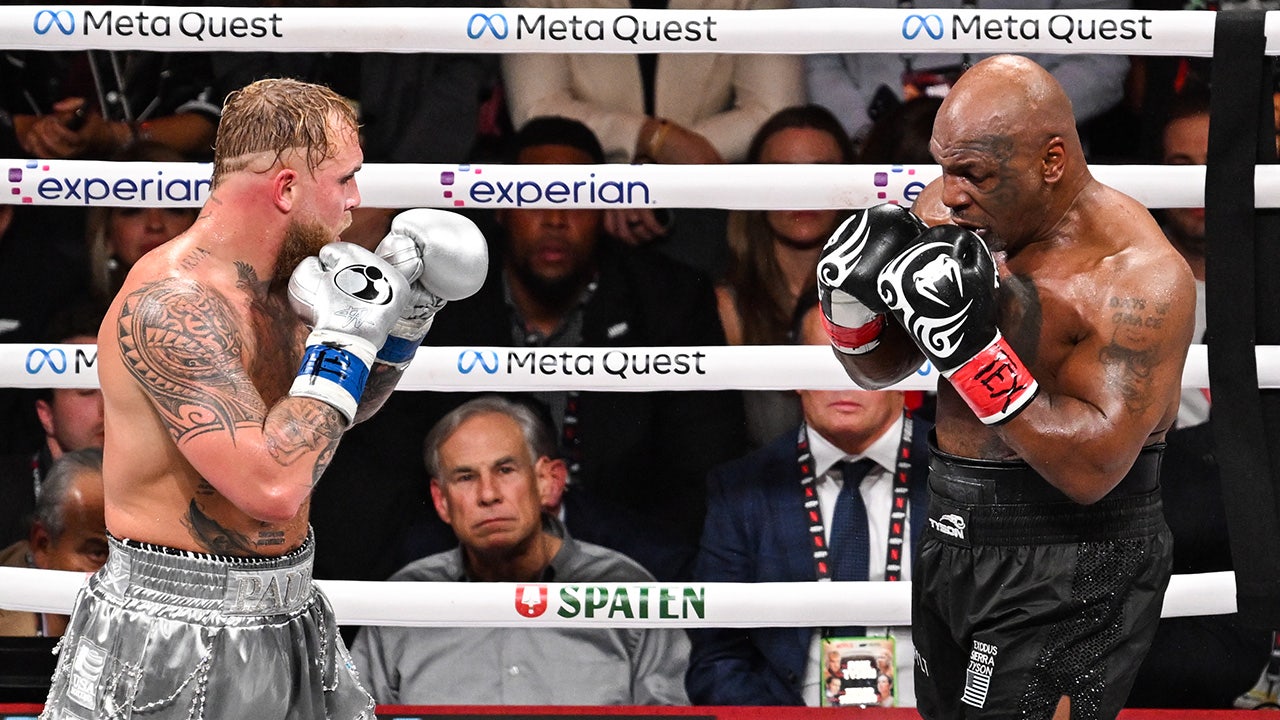Mark Zuckerberg is the latest billionaire to shell out tens of millions of dollars for a pricey outpost in Donald Trump’s gilded capital.
For a month, neighbors in Washington's upscale Woodland Normanstone neighborhood have speculated about the unidentified buyer who paid $23 million in cash for a 15,000-square-foot mansion. The sale was the third-most expensive in city history and was shrouded in secrecy, with real estate agents muzzled by non-disclosure agreements. Soon after the deal went through in early March, images of the house became pixelated on Google Maps.
But on Monday, the same day flight-tracking web sites revealed that the Meta CEO’s private jet had landed at Dulles Airport, observers on the quiet block not far from the Naval Observatory noticed an uptick in action at the house, which had been largely dark for months.
And on Wednesday, the same day Zuckerberg was spotted at the White House, a Meta spokesperson confirmed it to POLITICO Magazine: “Mark and Priscilla have purchased a home in D.C., which will allow Mark to spend more time there as Meta continues the work on policy issues related to American technology leadership,” the spokesperson told me in a statement referencing Zuckerberg and his wife, Priscilla Chan.
So why would the head of a California-based company with no particular personal ties to Washington feel the need to buy any house in the capital, let alone one of the most expensive places ever sold?
Meta says he’ll be spending more time here, and a private home is safer and more convenient. It would be consistent with Zuckerberg’s footprint in other places he visits. He owns properties in Palo Alto, Lake Tahoe, and Hawaii, among other places.
But real estate pros who have followed the sudden surge in upper-bracket D.C. real estate transactions say a newfound interest in Washington reflects the culture of the second Trump administration — where private-sector CEOs have gotten the message that the way to the administration’s heart is by showing up in person.
“I think it’s proximity and being here,” said Tom Daley, a longtime veteran of Washington’s high-end real-estate game. “It’s the ultimate bow to the man in the White House. To me, it’s a little reminiscent of when the Trump Hotel was the Trump Hotel. He notices who’s there. It’s an easy way to say, ‘Hey, we’re with ya. Here we are.’ I’m sure he takes it as the ultimate compliment.”
In other words, an out-of-town CEO’s Washington abode isn’t about having a place to sleep during occasional trips to the capital — it’s more like a personal embassy to the administration, a physical embodiment of the good relations between a certain class of corporate titan and the government of the United States.
In fact, the tendency of tycoons to buy a Washington property predates the second Trump era. Amazon founder and Washington Post owner Jeff Bezos bought his own $23 million property in Kalorama in 2016. In 2021, Paypal co-founder and conservative mega-donor Peter Theil paid $13 million for a beaux-arts mansion around the corner from the new Zuckerberg digs.
But the mogul-ization of D.C.’s priciest neighborhoods really picked up speed over the past year. The former Google CEO Eric Schmidt last year paid $15 million for a Georgetown residence once occupied by Jacqueline Kennedy. David Sacks, a PayPal co-founder now serving as an AI and crypto czar in the White House, spent $10.3 million on a Northwest D.C. penthouse. And the former eBay executive Jeff Skoll last fall paid $17 million for a pair of suburban Virginia properties that he reportedly aims to turn into a compound.
Several real estate agents told me they expect more will follow.
Jennifer Knoll, another two-decade industry veteran who specializes in upper-bracket Washington-area properties, said Trump’s second inauguration — when tech billionaires stood right behind the returning president as he took his oath — drove home the importance of a personal Beltway presence to a lot of potential clients.
Knoll said her firm’s sales are up 100 percent year-over-year in the $5 million-plus category. She said she recently traveled to Palm Beach to brief colleagues there because several of them had wealthy clients who were thinking of buying in Washington.
“In everything in life you get a lot further by showing up,” Knoll told me. “I think that these people want to be able to meet with the president and members of Congress and the administration when they want to get something done. To do that, they need to be in town. And they want the privacy and security that’s available to you if you have your own place.”
Even if you’re rarely there. Knoll said that trying to apply a typical homeowner’s financial logic to billionaire transactions misses the point: “These CEOs have such vast fortunes that purchasing a home in D.C., even if they’re overpaying, even if it’s not a great investment at the price they’re paying, it doesn’t really matter. The benefits they can reap from relationships with the government can make up for any loss from a bad real estate deal.”
Like a good real estate agent, of course, she hastened to note that she wasn’t calling expensive Washington homes a bad investment. Quite the contrary.
The recent sales underline a weird duality in the local economy, where massive job cuts at federal agencies and government contractors are petrifying Permanent Washington’s middle classes — but where a large coterie of billionaires and hundreds-of-millionaires has flocked to the Trump administration.
Even without CEOs like Zuckerberg, deep-pocketed Trump appointees like Navy Secretary John Phelan are reportedly looking to spend big on real estate, bouying the city’s top end even as other locals slam the brakes on their overall spending. Commerce Secretary Howard Lutnick spent a record $25 million on a French chateau-style megamansion off Foxhall Road formerly owned by Fox anchor Brett Baier. Treasury Secretary Scott Bessent dropped $12.5 million on a historic Georgetown property.
For observers of Washington folkways, there are a few notable things about the real estate surge.
For one, there’s the timing. While very rich people have always gotten political appointments, they’ve often waited a while — to scope out the commute, or at least make sure they don’t hate the job — before actually buying. But in the case of Trump appointees like Lutnick, the former CEO of Cantor Fitzgerald, the purchase came before he was even confirmed.
There’s also the matter of geography. Not so long ago, particularly in Republican administrations, many deep-pocketed big shots retreated to the Virginia suburbs after work, buying estates far from neighbors’ prying eyes. But the highest-profile Trump-era sales are happening in relatively close-in D.C. neighborhoods like Kalorama or Massachusetts Avenue Heights.
As for what the influx is doing to these neighborhoods, the early answer seems to be: Not much.
“These people are buying homes but not necessarily spending that much time here,” Gawain Kripke, the elected Advisory Neighborhood Commission member whose district includes the properties of Thiel and Zuckerberg, told me last month. “They’re definitely not participating in neighborhood gatherings or anything. Especially down in that part of the neighborhood, they’re very discreet.”
Daley, the real estate agent and a full-throated D.C. booster, says he’ll take it all the same. “Anything that adds to the city and funds the services and the restaurant scene, I’m all for it,” he said. “Come spend your money!”
.png)









 English (US) ·
English (US) ·